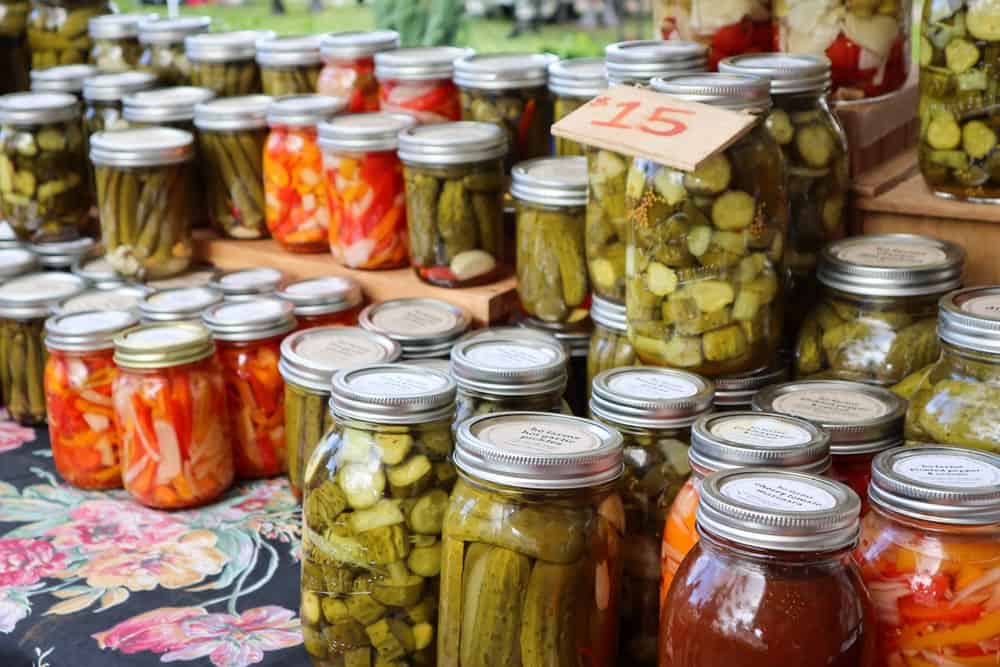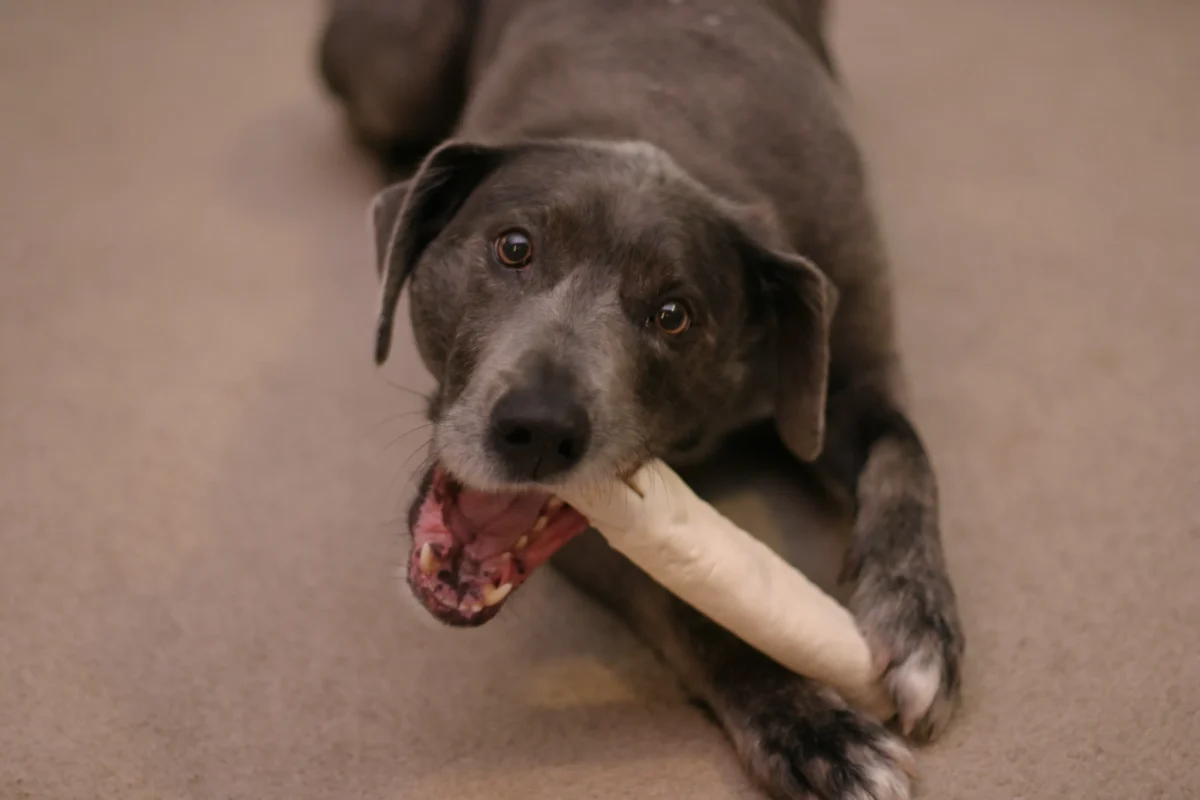Many dog owners are unsure about what sorts of human foods their pets can and cannot eat. When it comes to pickles, the answer is a bit of a mixed bag. In general, it is best to avoid giving your dog any pickles that are not specifically marketed as being safe for dogs. This means avoiding pickles that are high in sodium or have other ingredients that could harm your pet.
However, kosher dill pickles are generally safe for dogs to eat in moderation. The main ingredient in kosher dill pickles is cucumbers, which are perfectly safe for dogs. In addition, the kosher salt used to preserve kosher dill pickles is also safe for dogs in small amounts.
So, if your dog happens to steal a kosher dill pickle off your plate, there is no need to panic. Just make sure to keep an eye on your pet, as too many pickles can cause stomach upset.
Ingredients in Kosher Dill Pickles
Let’s look at some of the ingredients in Kosher Dill Pickles and find out why they aren’t good for dogs.
Salt
Salt is an essential mineral for humans, but it can be very harmful to dogs. Salt can cause dehydration, salt poisoning, and electrolyte imbalances. Too much salt can also lead to gastrointestinal distress, such as vomiting and diarrhea. In severe cases, salt poisoning can be fatal. If you think your dog has ingested salt, it is important to contact your veterinarian immediately.
Salt should also be avoided in dog foods and treats, as it can harm a dog’s health. When feeding your dog, choose foods that are low in salt and do not contain any salt additives. Taking these precautions can help keep your dog healthy and salt-free.
Vinegar
Vinegar is a common household ingredient that can be used for cleaning, cooking, and more. However, vinegar is also bad for dogs. Vinegar can cause irritation and redness in a dog’s eyes, nose, and throat. In some cases, vinegar can also lead to gastrointestinal problems like vomiting and diarrhea. If your dog ingests vinegar, it is important to contact your veterinarian immediately.
Even if vinegar does not seem to be causing any problems, it is still best to avoid using it around dogs. There are plenty of other household products that can be used instead of vinegar that are safe for pets.
Black Pepper
While back pepper is perfectly safe for humans, it can be dangerous for dogs. The active ingredient in black pepper, piperine, can be toxic to dogs in large quantities. Symptoms of black pepper poisoning in dogs include vomiting, diarrhea, and abdominal pain. In severe cases, piperine can cause respiratory problems and seizures.
Dogs should therefore never be given black pepper, and care should be taken to keep them away from areas where the spice has been used. Contact your veterinarian immediately if you suspect your dog has ingested black pepper, contact your veterinarian immediately.
Pickling Cucumbers
Pickling cucumbers are small, dark green cucumbers that are often used to make pickles. While pickling cucumbers are safe for people to eat, they can be dangerous for dogs. The main concern with pickling cucumbers is their high sodium content.
Sodium is an essential mineral for dogs, but too much sodium can lead to serious health problems such as sodium ion poisoning. Pickling cucumbers also contain vinegar, which can irritate a dog’s stomach and cause vomiting or diarrhea. For these reasons, it is best to keep pickling cucumbers away from dogs.
Dill Seed
Dill seeds come from the dill plant, and they are commonly used as a spice. They have a strong, pungent flavor that can add a lot of depth to recipes. However, dill seeds are not safe for dogs to consume. The dill plant contains a compound called d-carvone, which is toxic to dogs. When d-carvone is ingested, it can cause gastrointestinal distress and liver damage.
Symptoms of d-carvone toxicity include vomiting, diarrhea, and lethargy. If you suspect that your dog has eaten dill seeds, contact your veterinarian immediately. Treatment typically involves induced vomiting and administration of activated charcoal to absorb the toxins. With prompt treatment, most dogs make a full recovery.

Garlic
« The Ultimate Guide to Potty Training Your Golden Retriever Puppy
Do Golden Retrievers Bite? »
It’s an aromatic food that many people enjoy for its flavor. But did you know that garlic is bad for dogs? That’s right – garlic can be toxic to our furry friends. Garlic contains a compound called thiosulfate, which can cause anemia in dogs.
Thiosulfate is also capable of damaging red blood cells, leading to Heinz body anemia. Garlic can also irritate a dog’s digestive system, resulting in vomiting and diarrhea. If your dog consumes garlic, it’s important to monitor them closely and contact your veterinarian if they start to show any signs of illness. So next time you’re cooking with garlic, make sure to keep it out of reach of your four-legged friend!
Fresh Dill
Fresh dill is a common ingredient in many dishes, but it is not safe for dogs to consume. The main reason why fresh dill is bad for dogs is that it contains a compound called saponin. Saponin is poisonous to dogs and can cause gastrointestinal distress, vomiting, and diarrhea. In addition, fresh dill also contains essential oils that can be harmful to a dog’s liver and kidneys. For these reasons, it is best to keep fresh dill out of reach of dogs. If your dog does consume fresh dill, it is important to seek veterinary care immediately.
Final Word
Pickles are a popular food item, and many people enjoy them as a snack or side dish. But can our furry friends enjoy pickles as well? The answer is yes, pickles are safe for dogs to eat in moderation. However, there are a few things to keep in mind when feeding your dog pickles. First, pickles should only be given as a treat and not as a main source of nutrition.
Second, pickles are high in sodium, so they should not be given to dogs who are already on a sodium-restricted diet. Finally, pickles should be fed in moderation, as eating too many can cause gastrointestinal upset in some dogs. So if you’re looking to treat your pup to something special, pickles may be the way to go – just be sure to do so in moderation!









